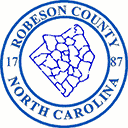Keeping Good Farm Records Can Improve Profitability
go.ncsu.edu/readext?335026
en Español / em Português
El inglés es el idioma de control de esta página. En la medida en que haya algún conflicto entre la traducción al inglés y la traducción, el inglés prevalece.
Al hacer clic en el enlace de traducción se activa un servicio de traducción gratuito para convertir la página al español. Al igual que con cualquier traducción por Internet, la conversión no es sensible al contexto y puede que no traduzca el texto en su significado original. NC State Extension no garantiza la exactitud del texto traducido. Por favor, tenga en cuenta que algunas aplicaciones y/o servicios pueden no funcionar como se espera cuando se traducen.
Português
Inglês é o idioma de controle desta página. Na medida que haja algum conflito entre o texto original em Inglês e a tradução, o Inglês prevalece.
Ao clicar no link de tradução, um serviço gratuito de tradução será ativado para converter a página para o Português. Como em qualquer tradução pela internet, a conversão não é sensivel ao contexto e pode não ocorrer a tradução para o significado orginal. O serviço de Extensão da Carolina do Norte (NC State Extension) não garante a exatidão do texto traduzido. Por favor, observe que algumas funções ou serviços podem não funcionar como esperado após a tradução.
English
English is the controlling language of this page. To the extent there is any conflict between the English text and the translation, English controls.
Clicking on the translation link activates a free translation service to convert the page to Spanish. As with any Internet translation, the conversion is not context-sensitive and may not translate the text to its original meaning. NC State Extension does not guarantee the accuracy of the translated text. Please note that some applications and/or services may not function as expected when translated.
Collapse ▲In order to get ready for the 2015 farm season, it is important for farm managers to have in place a complete and accurate farm records system in order to make informed management decisions that will help maintain or improve farm business profitability. Records systems have four functions: (1) as an indicator of progress; (2) as a planning tool; (3) as a diagnostic tool for identifying strengths and weaknesses; and (4) to assist in reporting to the Internal Revenue Service and other taxing entities, creditors, other farm asset owners, and to others who have a vested interest in the financial position of the business.
Records can also help the manager plan and implement farm business arrangements and do estate and other transfer planning. Furthermore, farm managers can use records to determine what the efficiencies and the inefficiencies are, measure progress of the business, and plan for the future. A good records system will assist managerial decision-making and be a source of personal satisfaction.
The degree of complexity of a farmer’s records system depends on management objectives. The farmer seeking a simple tax record needs only to use expense, income, payroll, and depreciation accounts, with no allocation of transactions to specific commodity enterprises. To provide financial information for lenders, the farmer will, at a minimum, need to inventory all asset and liability accounts and prepare basic financial statements annually.
A few years ago, farmers generally had only two bookkeeping choices: (1) keeping their own record-books or ledgers and (2) using bookkeeping services provided by accountants or farm organizations which provided the farmer with financial reports monthly, quarterly, or annually. However, personal computers provide farms with computerized bookkeeping that was previously available only to large corporations.
Selecting accounting software and computerizing recordkeeping or accounting systems must involve the key players – farm manager, on-farm accountant, and the farm’s public accountant. There are different types of computer software to assist farm managers in keeping records. There are several that provide detailed record-keeping while others help farmers learn how to evaluate the consequences in their farming operation. Cooperative Extension can provide information about what software is available and how it can be applied.
With new technologies, the value of computerized farm management tools depends on how conscientiously and wisely they are used. For a computer system to reach its potential, the farm manager must be willing to record data on a regular basis and use the resulting information and analyses in making crucial farm decisions.
For more information, please contact Nelson Brownlee, Extension Area Farm Management Agent with North Carolina Cooperative Extension, Robeson County Center, at 671-3276, by E-mail at nelson_brownlee@ncsu.edu, or visit our website at https://robeson.ces.ncsu.edu/.
NC State University and N.C. A&T State University are collectively committed to positive action to secure equal opportunity and prohibit discrimination and harassment regardless of age, color, disability, family and marital status, gender identity, genetic information, national origin, political beliefs, race, religion, sex (including pregnancy), sexual orientation, and veteran status. NC State, N.C. A&T, U.S. Department of Agriculture, and local governments cooperating.




